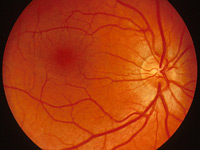Ocular Imaging & Applied Vision Science - OPTM3201
Faculty: Faculty of Science
School: School of Optometry and Vision Science
Course Outline: http://www.optometry.unsw.edu.au
Campus: Sydney
Career: Undergraduate
Units of Credit: 6
EFTSL: 0.12500 (more info)
Indicative Contact Hours per Week: 4
Enrolment Requirements:
Prerequisite: OPTM2133 and OPTM2233 and VISN2111
CSS Contribution Charge: 2 (more info)
Tuition Fee: See Tuition Fee Schedule
Further Information: See Class Timetable
View course information for previous years.
Description
Students will be introduced to lens design principles, and will learn ways of minimising the most common optical aberrations, of importance in optical dispensing. Students will also understand how the optics of current instrumentation may be improved and exploited to maximise image quality, extending and applying their studies in optics in first year. This knowledge will facilitate optical imaging and documentation skills in the clinical environment, where it is important to be able to understand how best to image specific ocular structures to aid diagnosis in the case of pathology.
In the ocular imaging component of this course, foundation knowledge in anatomy, physiology and optical imaging skills will be applied to strengthen understanding of how structure may relate to visual function. These skills are important for ophthalmic imaging technicians, sales professionals of optical imaging equipment and clinicians such as optometrists, ophthalmologists and orthoptists.
Finally, students will apply their knowledge in radiometry, photometry, colorimetry and environmental optometry in a lighting evaluation supported by the resources of a fully functioning lighting measurement laboratory. The skill of lighting evaluation is not only important for optometrists, who advise their patients, but may be of value for students who seek further qualifications in the lighting industry. This course will run as a series of lectures and practicals followed by problem-based learning assignments. By completion of this course, students will have built a portfolio to showcase their skills.
Note: VISN3111 is assumed knowledge for this course.









